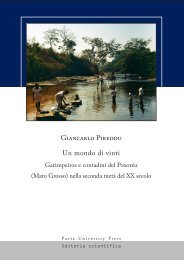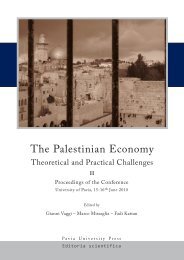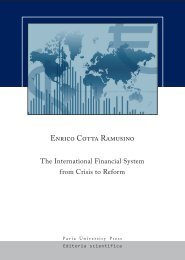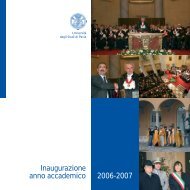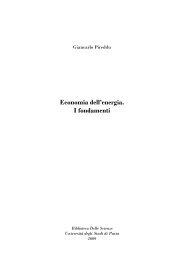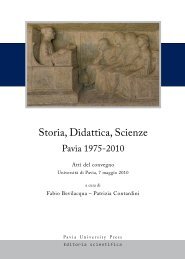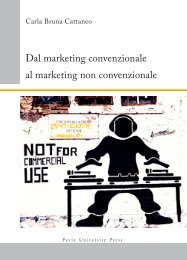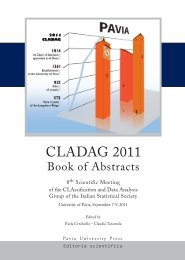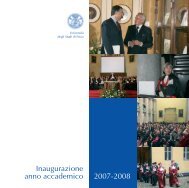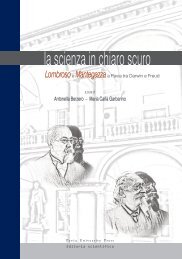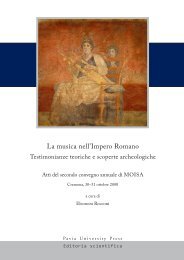Musica che affronta il silenzio - Scritti su Toru Takemitsu - Pavia ...
Musica che affronta il silenzio - Scritti su Toru Takemitsu - Pavia ...
Musica che affronta il silenzio - Scritti su Toru Takemitsu - Pavia ...
You also want an ePaper? Increase the reach of your titles
YUMPU automatically turns print PDFs into web optimized ePapers that Google loves.
Convergence between West and East in 20 th Century Music:<br />
Reflections on Some Crucial Aspects<br />
Gianmario Borio<br />
In recent decades the relationships between Eastern and Western cultures have once again<br />
become the <strong>su</strong>bject of enquiry for anthropologists, ph<strong>il</strong>osophers and historians. This interest<br />
goes hand in hand with certain social and political phenomena: the all-pervasive expansion<br />
of communication systems, the spread of the capitalist economy worldwide, the growing<br />
mob<strong>il</strong>ity of individuals, and ideas and life styles becoming common to the most disparate<br />
ethnic groups. These developments have raised a series of questions: is the unification or<br />
partial synthesis of cultural forms and social practices bound to lead to the blurring of identities<br />
and in certain cases to a crisis in fundamental values? Or does it rather tend to<br />
reinforce identities, if for no other reason as an instinct of self-defence or preservation? Or<br />
again, is this paving the way for a worldwide culture that w<strong>il</strong>l draw on fluid, read<strong>il</strong>y transferable<br />
attitudes to knowledge? Investigation of developments in the domain of music in the<br />
20 th century may offer some insights into <strong>su</strong>ch questions, although rather than coming up<br />
with unequivocal responses, we must be prepared for this ultimately to reveal all the topic’s<br />
ambiguity and complexity.<br />
In the wake of the influential study by Edward Said, one may be tempted to denounce the<br />
convergence of perspectives between East and West as nothing more than a trompe l’oe<strong>il</strong>. 1<br />
This <strong>su</strong>spicion becomes all the stronger when the field of research – that of notated composition<br />
destined for concert performance and <strong>su</strong>bject to individual, contemplative con<strong>su</strong>mption –<br />
forms part of the cultural system that has preva<strong>il</strong>ed in the West in modern times and has become<br />
the bête noire of post-colonial studies. Nonetheless there are at least two elements<br />
which go to justify <strong>su</strong>ch a reflection:<br />
1. there has been a self-conscious evolution of the conception of music in the<br />
20 th century, coinciding at various points with an interrogation of the social<br />
system (language, customs, institutions and roles);<br />
1 Cf. Said (1978).



